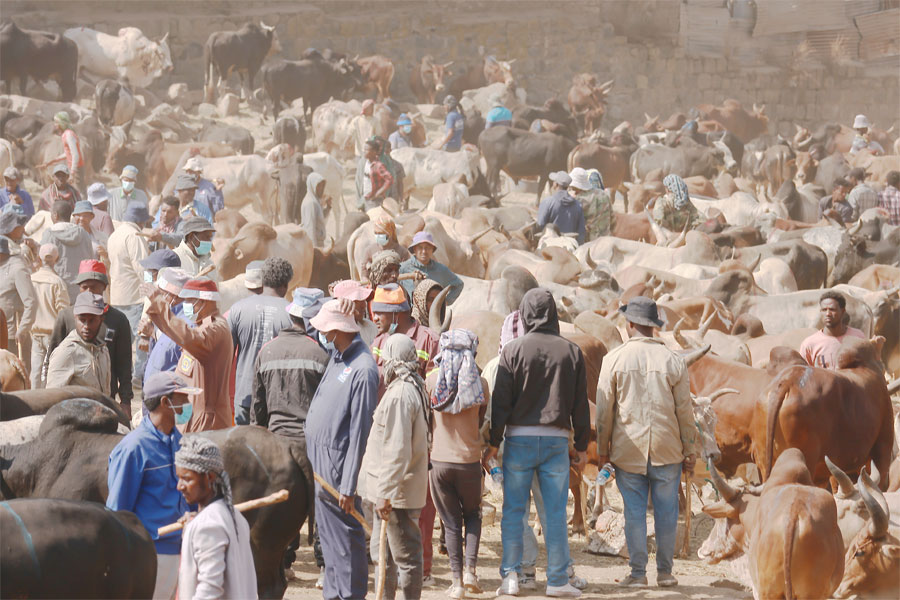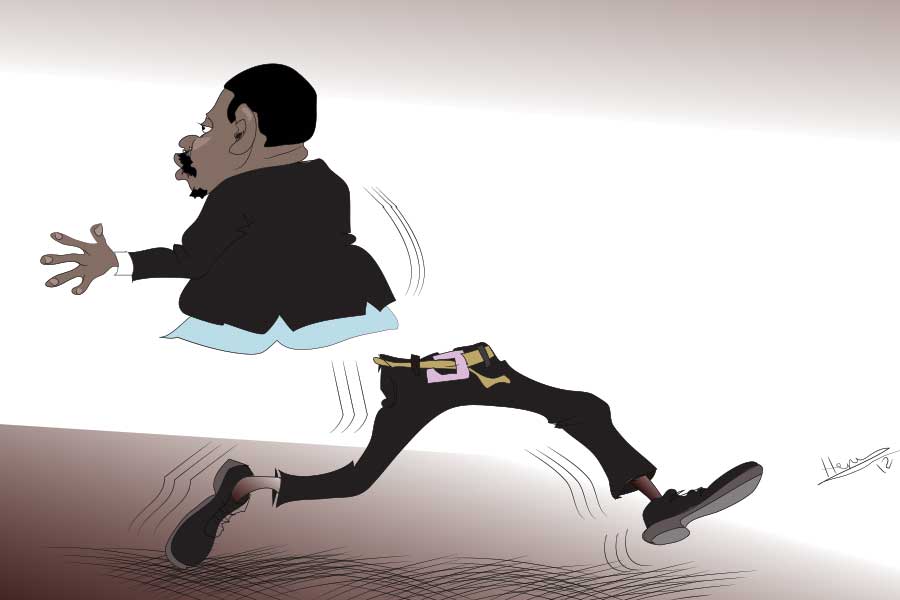
Commentaries | May 13,2023
Mar 16 , 2024
By Kidist Yidnekachew
My daily commute through a mix of taxis and a bajaj offers a fascinating window into human interaction amidst the constant hum of economic realities.
Kindness often blossoms in unexpected places. Witnessing individuals anonymously pay taxi fares for the elderly or those struggling with change uplifts the spirit. I found myself in a similar situation, realising my reliance solely on mobile banking had rendered me cashless. My frantic search was fortunately interrupted by a young lady who, recognising my predicament, generously covered my fare.
This heartwarming gesture stands in glaring contrast to the frequent outbursts of arguments over a mere five Birr change between passengers and taxi assistants. While passengers deserve their rightful change, some assistants resort to questionable tactics, sparking feelings of insult.
Fluctuating taxi fares based on demand can further squeeze passengers. Those who meticulously budget their commutes often carry only the designated amount. An additional five Birr can significantly impact their ability to afford the next trip. Taxis, unfortunately, offer little leniency to passengers facing genuine financial constraints.
A situation I recall involved a driver attempting to overcharge which resulted in a complaint and a temporary license suspension. Surprisingly, the assistant continued demanding the extra fare even after regaining his license. Despite attempts to justify the increase by claiming insufficient profit, a passenger firmly refused, prompting the driver to acknowledge the potential consequences of his dishonesty.
Declining to overpay, especially when there is no collective agreement, can be a challenge. However, a united front can make a difference. Conversely, agreeing to an initial price and contesting it later proves futile.
The intensity surrounding these minuscule fare disagreements is perplexing. The same individuals who vehemently oppose a three-birr increase often remain silent in the face of substantial price hikes for essential goods like onions. This passivity allows being subjected to exorbitant prices, highlighting a misplaced assertion of control. Instead of engaging in petty arguments, I find it more meaningful to acknowledge the demanding circumstances taxi assistants face in making ends meet. While some might view it as a small gesture, prioritising this over routinely overpaying for essential goods seems a more impactful approach.
The contrast between reactions to taxi fare hikes and the widespread silence on broader economic issues exposes a concerning lack of collective action. Proactive measures undertaken by citizens in other countries are a reminder of the need for a more unified approach.
Understanding the "why" behind these differing reactions sheds light on the situation. Direct interaction with the driver in the taxi scenario personalises it, making the price hike feel exploitative. In contrast, rising grocery prices lack a single entity to blame, creating a sense of anonymity and helplessness.
Taxi drivers are not immune to the effects of inflation. Rising fuel costs and vehicle maintenance significantly impact their earnings. A seemingly small fare increase for passengers can be a crucial adjustment for drivers to maintain their livelihoods. Acknowledging that paves the way for a more constructive approach and collaborative solutions in navigating economic difficulties.
Though a microcosm, my commute offers a glimpse into the relationship between human behaviour and the pressures of navigating economic realities. Kindness, understanding, and a united voice can provide an equitable future for us all.
PUBLISHED ON
Mar 16,2024 [ VOL
24 , NO
1246]


Commentaries | May 13,2023

Commentaries | Jan 13,2024

My Opinion | Jul 22,2023

Commentaries | Oct 05,2019

Radar | Oct 05,2025

Fortune News | Nov 03,2024

Radar | Aug 21,2023

Agenda | Jan 07,2024

Editorial | Oct 19,2019

Editorial | Jun 12,2021

Photo Gallery | 176323 Views | May 06,2019

Photo Gallery | 166541 Views | Apr 26,2019

Photo Gallery | 157029 Views | Oct 06,2021

My Opinion | 136902 Views | Aug 14,2021

Dec 22 , 2024 . By TIZITA SHEWAFERAW
Charged with transforming colossal state-owned enterprises into modern and competitiv...

Aug 18 , 2024 . By AKSAH ITALO
Although predictable Yonas Zerihun's job in the ride-hailing service is not immune to...

Jul 28 , 2024 . By TIZITA SHEWAFERAW
Unhabitual, perhaps too many, Samuel Gebreyohannes, 38, used to occasionally enjoy a couple of beers at breakfast. However, he recently swit...

Jul 13 , 2024 . By AKSAH ITALO
Investors who rely on tractors, trucks, and field vehicles for commuting, transporting commodities, and f...

Oct 18 , 2025
The political establishment, notably the ruling party and its top brass, has become p...

Oct 11 , 2025
Ladislas Farago, a roving Associated Press (AP) correspondent, arrived in Ethiopia in...

Oct 4 , 2025
Eyob Tekalegn (PhD) had been in the Governor's chair for only weeks when, on Septembe...

Sep 27 , 2025
Four years into an experiment with “shock therapy” in education, the national moo...

Oct 18 , 2025 . By NAHOM AYELE
In a sweeping reform that upends nearly a decade of uniform health insurance contribu...

A bill that could transform the nutritional state sits in a limbo, even as the countr...

Oct 18 , 2025 . By SURAFEL MULUGETA
A long-planned directive to curb carbon emissions from fossil-fuel-powered vehicles h...

Oct 18 , 2025 . By BEZAWIT HULUAGER
Transaction advisors working with companies that hold over a quarter of a billion Bir...